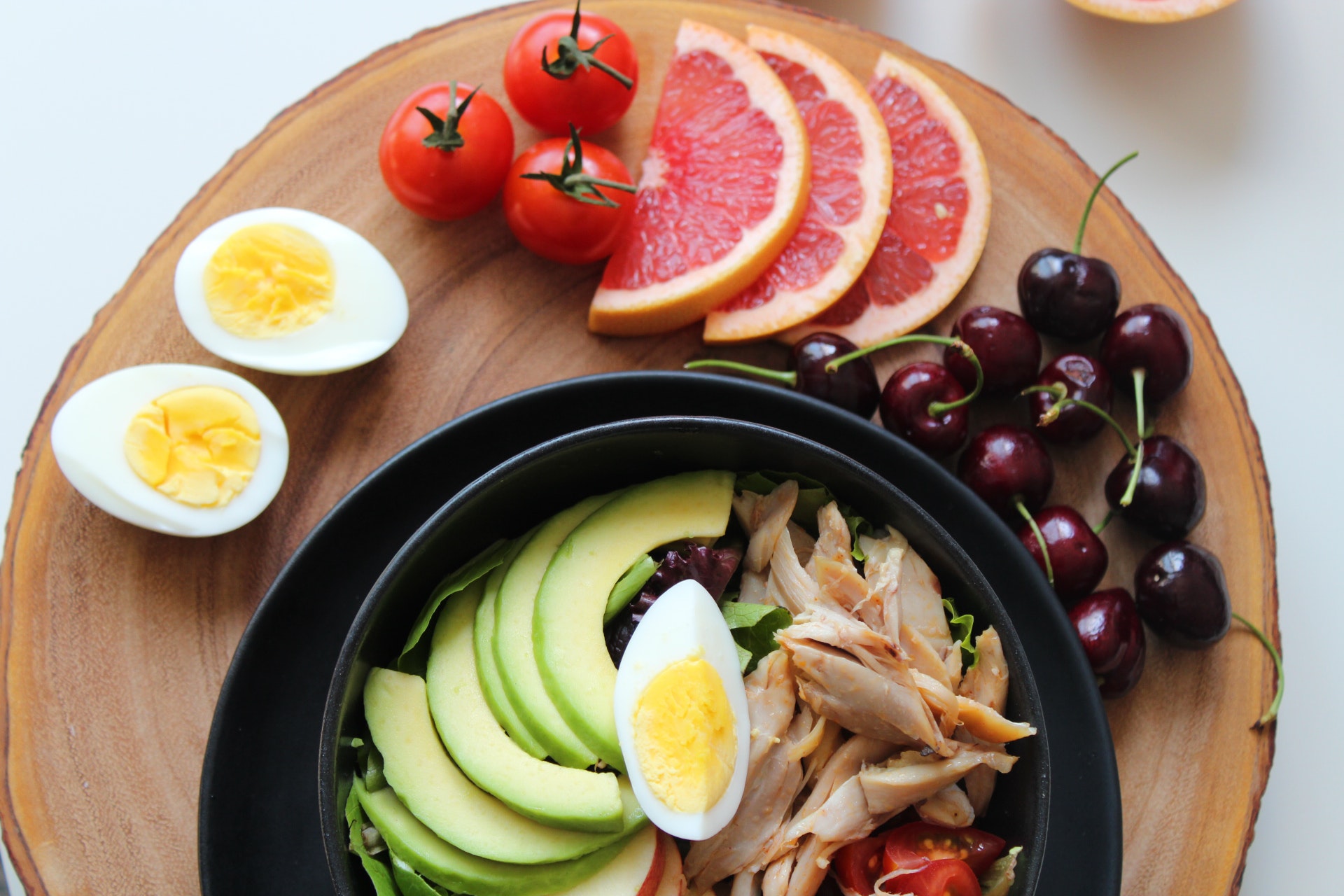By Andrew Hickey on Feb 6, 2023 @ 12:24 PM
Whether it's turmeric, avocado toast or oat milk, there’s always a new food trend in the public discussion for its associated health benefits. While overall wellness is talked about, the topics of oral and vision health are not always first to be discussed when it comes to these culinary crazes.
It is key to remember that maintaining a healthy, well-balanced diet is important to keeping your eyes healthy. You can help reduce your risk for serious eye conditions such as cataracts, dry eyes, and poor night vision.
A healthy mouth is known to be important to your overall health. In fact, by taking care of your mouth you can help prevent issues such as gum disease, gum infection and periodontitis. Poor oral health can also lead to a host of life-threatening medical issues like cardiovascular conditions, diabetes, and preterm birth.
Key Takeaways:
- Healthy eyes and a healthy mouth are important to your overall health.
- You can help prevent a host of medical issues like cardiovascular conditions, diabetes, cataracts, and dry eyes.
- Foods rich in fiber, calcium and magnesium are great for your mouth.
- Your eyes will get stronger with leafy greens, lean meat, seafood, nuts, and eggs.
With that in mind, we will be taking a closer look at the best food for vision health and teeth that you can use all year-round.
Which food for vision health is right for you?
Much like its effect on your teeth, the food you eat also impacts your vision. So, it should be no surprise that a well-balanced diet will help your eyes. Luckily, there is a variety of foods and nutrients you can have to get a clearer view. See what we did there? Let’s get into the good stuff:
- Leafy greens: These can be added to many different recipes and are easy to digest. This includes kale, spinach, and collard greens. Leafy greens are high in vitamin C, which help maintain the blood vessels in your eyes. They also contain antioxidants to maintain the wellbeing of your retina. The darker the green, the better for you.
- Lean meat and poultry: Where’s the beef? It should be in your meal plan if you’re a meat-eater! Beef is rich in vitamin A and zinc. These are beneficial to both your cornea and retina. You can also turn to pork, chicken, turkey, and duck for those benefits to your eyesight. Like anything, meat should be eaten in moderation.
Zinc brings vitamin A from your liver to your retina, where it's used to make the protective pigment melanin. Oysters have more zinc per serving than any other food, but you don't have to be a shellfish lover to get enough: Beef, pork, and chicken (both dark and breast meat) are all good sources. - Seafood: Do the most for your retinas with omega-3 fatty acids. You can find these in seafood like salmon, tuna, trout, sardines, and anchovies. Holy mackerel! Oh, and that too! Oysters, crab, and scallops are also great options. If you can eat at least one of these delicacies each week your eyes will be in great shape. It will allow you to protect your eyes from conditions like dry eyes and glaucoma.
- Nuts and seeds: Go nuts! Perfect for a snack and to add crunch to any meal, they contain vitamin E and omega-3. You can choose from almonds, cashews, walnuts, and pistachios. Also, peanut butter. Between the vitamin E and other nutrients in your diet, you can help slow the effects of age-related macular degeneration (AMD). It may also help prevent cataracts.
- Eggs: These can be prepared in countless ways, which is egg-ceptional! You can unleash the true power of eggs by eating the yolks. They contain lutein and zeaxanthin, which can help prevent AMD. Runny yolks are yummy, folks.
- Carrots: Carrots have long been heralded as being good for your eyes. They are a major source of vitamin A, which helps your cornea. So, channel your inner Bugs Bunny! If you want more orange goodness, you can also get benefits from eating pumpkin, mango, apricots, and rock melon.
- Water: If you’re not properly hydrated, your eyes will suffer from dryness. The solution is to use eye drops and enjoy a tall glass of water. In fact, water is an essential part of any diet. The goal is to get two quarts (half a gallon) of water daily. Drinking water and avoiding sugary drinks is ideal, as it can result in diabetic retinopathy, which then leads to blindness. Luckily, there are dozens of sparkling water varieties with natural flavors.
- Broccoli and brussels sprouts: With their combination of vitamin A, vitamin C, and vitamin E, this jolly green duo is powerful! They are packed with antioxidants, which protect the cells in your eyes from a type of unstable molecule that breaks down healthy tissue (known as free radicals).
Which food for oral health is right for you?
Sugar, we love you, but you are not the friend of our oral health! Sugar feeds bacteria that occur naturally in the mouth. This leads to lactic acid production and potential erosion of tooth enamel. Acidic foods eat away at tooth enamel and cause decay. That includes alcohol, energy drinks, sour candy, grapes, peaches, and sugar-heavy condiments (like ketchup and mustard).
But we have good news for you. There are plenty of great options you can sub in for the overly sugary and acidic goodies:
- Dairy: We’re looking at you cheese, milk and even mashed potatoes! Dairy products are low in both acid and sugar. This is good for your teeth and provides calcium, which helps strengthen teeth. Certain kinds of cheese, like cheddar and Swiss, assist with saliva flow which washes food particles away from your teeth. It’s a super-powered treat!
- High-fiber foods: These act like “nature’s toothbrush.” Now that sounds cool! Bring on the fresh fruits (bananas, apples, oranges). In addition to being high in fiber, sweet potatoes also support a healthy digestive system and healthy vision, by helping form light-detecting receptors inside your eyes. Our popular green friend avocado also provides super-powered defense against tooth decay and inflammation, and assists in oral cancer prevention. We can’t forget our vegetable friends (brussels sprouts, peas) and those helpful legumes like peanuts and lentils. High-fiber foods help create mineral defenses against cavities, thanks to saliva production. A lot of these foods are also high in antioxidants and other nutrients known to reduce inflammation and help the body fight bacteria. Talk about results!
- Calcium-rich foods: Calcium provides great support to your oral health. It can be found in seafood (salmon, oysters, shrimp), as well as in cauliflower, nuts, and olives. These foods help produce more saliva and put minerals back in your teeth that you may have lost during eating.
- Food containing magnesium: Magnesium is important for increasing bone and teeth health. It helps regulate other nutrients like calcium, vitamin D, and phosphorus. Consider eating whole grains, dark leafy green vegetables, low-fat milk, and yogurt. Whole grains are also high in magnesium and fiber. This includes whole-grain cereals and pasta.
- Dark chocolate: Milk and white chocolate are tough to resist. But dark chocolate is also a great treat and a much healthier option on top of that. It is made of around 70% cocoa beans which contain tannins, polyphenols, and flavonoids. This gives dark chocolate it’s strong antioxidant properties. They benefit your mouth and teeth in a similar way to fluoride. Break off a piece today!
- Turkey: Have you heard the word about the bird? Turkey is high in protein and works in tandem with food rich in calcium and vitamin D. This helps keep your teeth and bones strong.
What foods should you avoid for your teeth?
Some of our favorite treats and essential items are “bad” for our teeth and overall health. Don’t feel too down on yourself, just consider cutting down as they can affect the enamel and strength of your teeth, as well as easily get stuck in between them.
- Multiple cups of coffee
- Hard candy
- Popcorn
- Kombucha
- Processed carbs: crackers, potato chips, bread.
- Dried fruit
With this knowledge you can be a lean mean healthy machine (or person). If you can lock down the routine of eating a balanced diet and combine that with brushing and flossing, you will be golden. Also, remember to schedule your annual dental check-up. Your dental insurance will typically allow a check-up at least once per year, so go ahead and confirm that. Happy new year and happy eating!
Want to have Solstice benefits?
Call our sales team at 877.760.2247 or email Sales@SolsticeBenefits.com
Already have Solstice benefits?
See your plan details by going to https://www.mysmile365.com/ or calling us at 1.877.760.2247.





comments